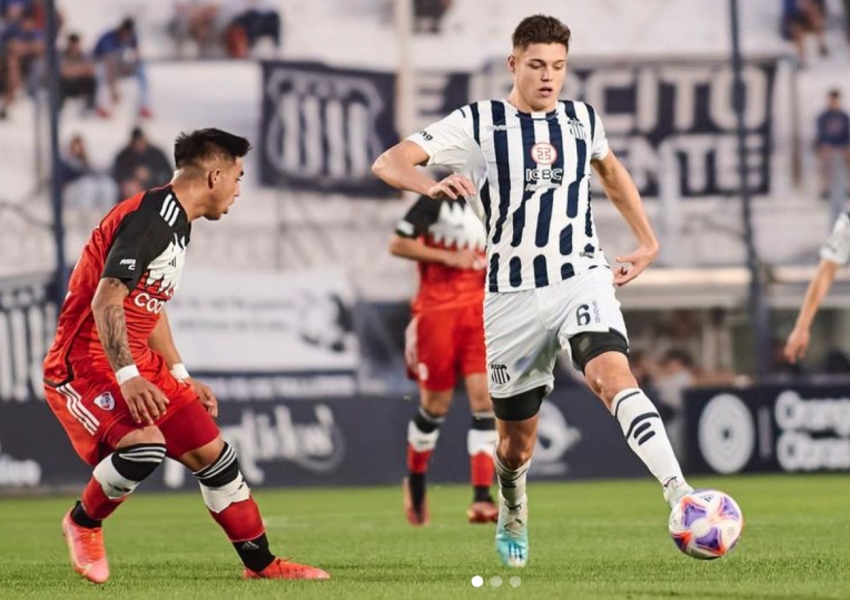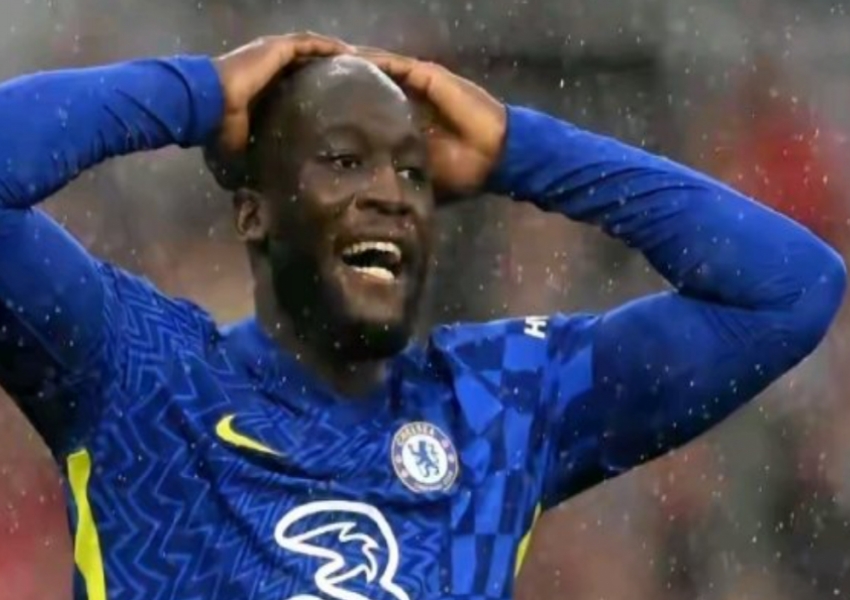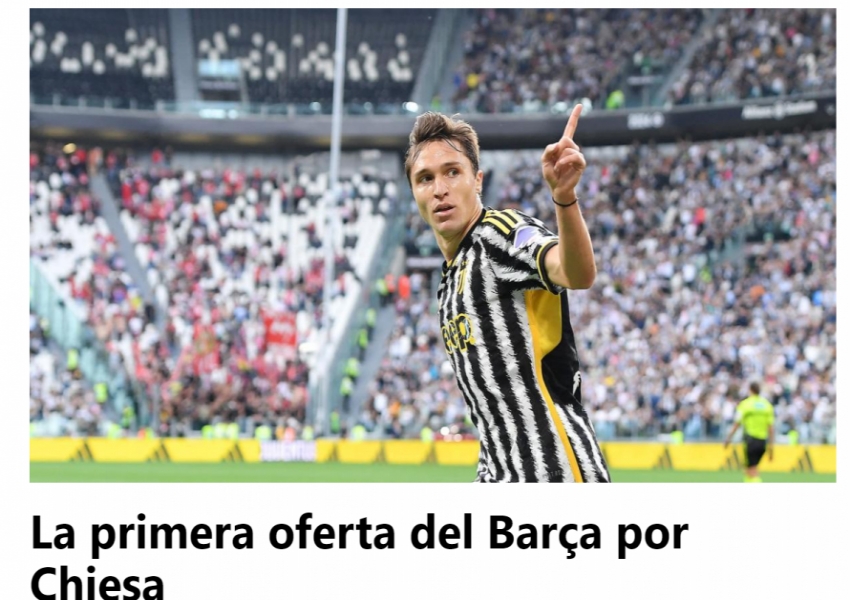Inter Milan’s New Ownership Sets Strict Rules on Striker Signings: A Comparison with Chelsea, Barcelona, and PSG
Inter Milan, under the new stewardship of Oaktree Capital, has found itself navigating a challenging summer transfer window. Despite the fans' calls for a star striker signing, Inter’s new ownership has imposed strict limits that have severely curtailed the club’s ability to make significant moves in the market. The restrictions are not just about financial prudence but reflect a broader shift in how the club is being managed—one that starkly contrasts with approaches taken by other European giants like Chelsea, Barcelona, and Paris Saint-Germain (PSG).

The Pursuit of Palacios: Inter’s Focus on Value
As Inter Milan fans eagerly await the next big signing, the club has instead turned its attention to more cost-effective options, such as Argentine midfielder Santiago Palacios from Club Atlético Independiente Rivadavia. The club’s management has reportedly reached an advanced stage in negotiations, with the player's current club sending representatives to Milan to finalize the deal, expected to be in the range of €6.5-7 million—an amount comparable to what Inter recently spent on Lazar Samardžić from Udinese.

Palacios’ current coach has spoken highly of the young Argentine, highlighting his potential and suitability for Serie A. "Palacios is a youngster with unlimited potential. He could become a top player one day. He has strength, speed, and technical ability, and he can contribute significantly to the attack," the coach said, confirming the likelihood of the transfer. "The club asked us not to play him last Saturday because something important was happening. I believe Palacios will adapt well to Serie A. Despite the differences between the leagues, he has the intelligence and character to absorb Italian football's concepts quickly."

This pursuit aligns with Inter’s strategy under Oaktree Capital’s ownership: prioritizing value over big-name signings. While Palacios may not be the marquee forward that fans crave, he represents a strategic investment in young talent with potential for future growth—a hallmark of financially driven decision-making.
The Striker Conundrum: Why Inter Is Struggling to Make a Big Signing
While fans continue to dream of a high-profile striker, the reality is that such a signing is unlikely unless there is a dramatic and unexpected change in circumstances. Two reliable sources have provided insights into why Inter Milan is facing such difficulties.
First, Italian journalist Gianluca Di Marzio highlighted that Inter’s head coach Simone Inzaghi’s wish for a new forward has gone unfulfilled due to the club’s rigid financial stance. "The hope for a new striker has not been met; this is the club’s red line. Marko Arnautović is still here, as is Joaquín Correa, so Inter already has five forwards," Di Marzio explained. The refusal of Oaktree Capital to sanction a new signing is largely due to the club's current surplus of players in the attacking department. Until Inter can offload players like Arnautović or Correa, the ownership will not approve another forward acquisition.
Chelsea’s situation serves as a cautionary tale that further explains Inter’s hesitation. The Stamford Bridge club, currently embroiled in chaos, has spent over £75 million this summer to bring in 11 new players, resulting in a bloated first-team squad of over 40 players. This has created a series of management issues and unwanted consequences. For example, Romelu Lukaku, once a prized asset, has been relegated to the U21 squad; Raheem Sterling, who participated in all six preseason games, was suddenly excluded from the Premier League squad two days before the season opener due to the arrival of new signings, sparking controversy; and homegrown talents like Conor Gallagher and Trevoh Chalobah have been forced to the periphery, with the club even considering selling them to balance the books.
Chelsea’s mismanagement has drawn widespread criticism, including from club legend Alan Shearer, who warned, "Mark my words, Sterling is just the beginning. Mauricio Pochettino will be dealing with these issues all year." The lesson for Inter Milan is clear: a bloated squad not only strains finances but also disrupts team harmony and damages the club's image. With this in mind, Oaktree Capital’s cautious approach to squad management seems prudent, even if it frustrates fans longing for a star signing.
Bastian Contrasts: Inter’s Approach vs. Barcelona and PSG
Italian journalist Fabrizio Biasin has also weighed in on the matter, particularly addressing the rumors surrounding Inter’s potential interest in Juventus winger Federico Chiesa. According to Biasin, the likelihood of Inter signing Chiesa can be ruled out due to both space and financial constraints. "We can dismiss the possibility of Inter signing Chiesa anytime soon. It’s not just that the club lacks room for a new forward; Oaktree Capital isn’t interested in investing in a player whose contract is about to expire and who has shown no interest in renewing. Inter and Chiesa have had contact, and Chiesa is open to moving to Milan, but Inter is unwilling to meet the €10-15 million price tag. The only way Chiesa could join Inter is on a free transfer next year," Biasin explained.
This approach contrasts sharply with how Barcelona and PSG operate. In the summer of 2022, PSG’s president Nasser Al-Khelaifi personally flew to Milan to negotiate the transfer of Milan Škriniar. Despite PSG’s initial offer falling €30 million short of Inter’s asking price, Al-Khelaifi's approach reflected a financial strategy similar to Oaktree Capital’s—focusing on perceived value rather than footballing necessity. PSG’s refusal to meet Inter’s valuation stemmed from their belief that Škriniar’s impending contract expiration made him a less valuable asset, and therefore they would only offer a reduced fee, considering any additional amount as an excessive premium.
Similarly, Barcelona’s pursuit of Chiesa offers an interesting point of comparison. Despite their ongoing financial struggles and the fact that the club is currently grappling with registration issues, Barcelona’s management, led by Deco, has reportedly submitted a €10 million bid for Chiesa. This move, according to Mundo Deportivo and Sport, is not because Barcelona has money to burn, but because they view the acquisition of a player of Chiesa’s caliber at that price as a rare market opportunity—a "bargain" too good to pass up.
Comparing Barcelona’s stance with that of Oaktree Capital underscores the differing priorities between footballing considerations and financial discipline. For Barcelona, despite their precarious financial situation, acquiring a player of Chiesa’s quality for a modest fee is a calculated risk based on footballing logic. For Oaktree Capital, however, the decision-making process is driven by a stricter financial rationale that views an expiring contract as a liability, not an opportunity.
Financial Logic vs. Footballing Ambition: Inter’s Dilemma
The situation at Inter Milan reflects a broader trend in football, where clubs are increasingly influenced by financial stakeholders who prioritize return on investment over sporting success. For Inter’s current ownership, this means adhering to strict financial guidelines, even if it means forgoing potential improvements to the squad. The idea of adding another forward to the team is seen as unnecessary and financially imprudent, given the existing roster and the inability to offload surplus players.
This cautious approach is a double-edged sword. On one hand, it protects the club from falling into the trap of financial overextension, a problem that has plagued clubs like Chelsea, who are now dealing with the fallout of an overstuffed squad and a divided locker room. On the other hand, it limits the team’s ability to compete at the highest level, as seen in the reluctance to pursue players like Chiesa, who could make an immediate impact.
Inter’s current predicament is a direct result of its ownership structure. With Oaktree Capital calling the shots, the club’s transfer strategy is dictated by financial imperatives rather than footballing ambitions. This approach, while ensuring the club remains on a stable financial footing, could also restrict its ability to compete for top honors, as the focus on financial discipline comes at the expense of on-field success.
While Inter Milan’s fans may be disappointed by the club’s lack of big-name signings, it is important to understand the broader context. The current ownership’s decisions are shaped by a financial philosophy that prioritizes stability over risk, value over star power. In a football landscape increasingly dominated by financial interests, Inter’s strategy reflects a cautious, calculated approach that seeks to avoid the pitfalls of overspending and mismanagement. However, this approach also raises questions about the long-term implications for the club’s competitive ambitions, especially in a league where rival clubs are willing to take risks for success.
As the transfer window draws to a close, Inter Milan finds itself at a crossroads. Will the club stick to its financial principles and avoid the pitfalls of overextension, or will it make a bold move to strengthen the squad and compete for titles? The answer may lie in a balance between financial logic and footballing ambition—a balance that Inter’s new ownership will need to strike if the club is to achieve both stability and success in the years to come.
Copyright Statement:
Author: mrfootballer
Source: Mrfootballer
The copyright of this article belongs to the author. Reproduction is not allowed without permission.
Recommended Blog
- Emperor's Cup Fourth Round: Shonan Bellmare Fearless Against Powerhouses, Vissel Kobe Shifts Focus to the Cup
- Champions League Playoffs: Lille Must Avoid Complacency, Bodø/Glimt Need to Stay Alert After Leading
- Premier League Opening Weekend Analysis: Can Chelsea's New Signings Make an Impact? Crystal Palace Aims to Build on Last Season's Success
- Inter's Two "Sacrificial" Players Silence Doubts: Winning Accolades Despite Lingering Regrets
- The Four-Year Evolution of Inter's New Wingback: A Quality More Valuable Than 12 Goals and 9 Assists
- Preview of Round 21 in the Allsvenskan: Are Elfsborg Vulnerable Against Strong Opponents? Varberg Grabs at a Lifeline
- Serie A Round 2 Preview: Napoli’s Uphill Battle to Retain Talent, Juventus Steady and Ready
- Italian Media Praises AC Milan While Casting Doubt on Inter Milan: The “Second Stint Curse” and Aging Squad Concerns
- Championship Round 4 Preview: Leeds United's Attack Yet to Shine, Leicester City Embracing Italian Influence
- Bayern Defender Goes on Strike: Pavard’s Rebellion Puts Tuchel in a Tough Spot as Inter Milan Awaits Transfer Breakthrough
Hot Blog
- English Media: Manchester United Will Win Premier League Title in 2028! History Will Repeat Itself, Two Teams Serve as Inspirations
- 0-2 Double Defeat! China National Team Stuck at 6 Points: No More Direct World Cup Hopes, Two Crucial Matches Ahead
- 4 AM Showdown: Barcelona's Revenge Match! Win = 3-Point Lead Over Real Madrid, Key Players Rested
- China National Football Team Drops 13.6 Points, Slips to 94th in FIFA Rankings: Syria Overtakes, New 9-Year Low
- 0-0 Draw! Japan 12 Shots, 2 Missed One-on-Ones: 8 Matches, 20 Points, Group Winner, Saudi Arabia Stuck at 10 Points in 3rd
- 4-1, Double Win Over Brazil! Argentina Celebrates: World Cup Qualification Secured, 4th Team Globally to Qualify
- Real Madrid Got Lazy: 7 Kilometers Less Running in UCL! Two Superstar Spectators While Barça Outruns Them All
- United Go for Glory: Unbeaten in 10, Fueled by Kobbie Mainoo’s Return, Red Devils Eye Europa League Crown
- Champions League Classic: Barça’s Midfield Maestro Worshipped by Thousands After 11.5KM Marathon
- Champions League Semifinal Odds: Barça at 99%, Real Madrid’s Hopes Dwindle to 6%, PSG Cruise Ahead